#I feel like Cassavetes could be one of the inspirations for Midnights
Explore tagged Tumblr posts
Photo

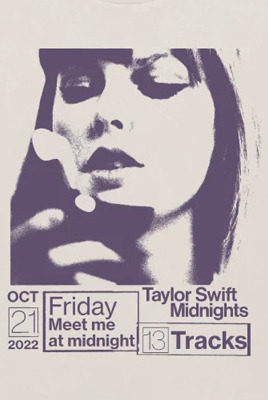
THE SIMILARITY
Also Taylor quoted John Cassavetes at one of the film festival Q&As: “‘I’ve never seen an exploding helicopter. I’ve never seen anybody go and blow somebody’s head off. So why should I make films about them? But I have seen people destroy themselves in the smallest way.’ Whoa—I felt that.”
#it doesnt necessarily mean anything#it's just that I was planning doing a concept movie MIDNIGHTS directed by John Cassavetes and suddenly remembers the quote#and then I was skimming thru some of Cassavetes film posters and stuff to find inspiration and BOOM#Faces poster screams Midnights merch#idk if Taylor did this on purpose#(it's not just Faces tho most of Cassavetes film posters applied the same style)#I feel like Cassavetes could be one of the inspirations for Midnights#the range and nuances of emotions is Cassavetes signature#Just like some of Taylor's lyrics in Midnights#(Maroon/Anti-Hero/yoyok/Midnight Rain/Sweet Nothing/wcs,just to name a few)#also because his most successful independent mastermpieces were from the 70s#just like the Midnights aesthetics#taylor swift#john cassavetes
20 notes
·
View notes
Text
Memories : Top 15 Films of 2020

If 2020 taught movie fans anything, it was that we shouldn’t take things for granted. On the dollars and cents side of things, movie theaters were already facing an uphill battle to stay sustainable, but the “shelter-in-place” practice of March and beyond decimated box office returns, with many theaters yet to reopen (if they will open at all). In terms of famous names and faces, the list of those who passed away featured numerous icons : Kobe Bryant, Kirk Douglas, Max von Sydow, Honor Blackman, Carl Reiner, Ennio Morricone, John Saxon, Wilford Brimley, Chadwick Boseman, Sean Connery, Tiny Lister Jr., Adolfo ‘Shabba Doo’ Quinones and many more transitioned to the great beyond. Netflix, Hulu, Amazon Prime, Shudder and a number of other streaming services saw themselves step into the forefront of the entertainment provider realm, with Warner Brothers and a handful of other studios making announcements that they will be following suit for at least 2021, if not for good.
With all of this uncertainty and chaos, however, the year 2020 was a surprisingly strong one, in my opinion, when it came to cinematic output... so much so, in fact, that aside from a number of Honorable Mentions, my list of top films was expanded to 15 in order to accommodate all of my choices. For anyone who has checked out my lists from previous years, you will know that I did not see every film released this year, but I did make my best effort to cover as wide a range of films as possible. Enjoy the list, and be sure to support film in whatever medium you are able to moving forward so that it can thrive.

HONORABLE MENTIONS
The 40-Year-Old Version (dir. Radha Blank) A nice little personal film that spoke to my hip-hop sensibility, as well as that ever-present awareness of the inevitability of age, and how it can skew our perspective in regards to our achievements.
Ava (dir. Tate Taylor) This isn’t the action film that’s going to reinvent the wheel, but if you look at action films like wheels, this is a quality wheel. Outside of Common, I couldn’t really find much to shoot down... this will definitely be one I consider the next time I have company and we’re looking for something fun to check out.
Bill & Ted Face The Music (dir. Dean Parisot) I honestly would have been satisfied with just two films in this franchise, but surprisingly, a third entry was created that didn’t ruin my overall enjoyment of the previous two films. Keanu Reeves and Alex Winter jumped in without missing a beat, a healthy dose of familiar faces popped back up, and the new cast additions weren’t too jarring... it’s nice to know that a pair of my favorite childhood films are officially now part of a trilogy.
Borat Subsequent Moviefilm: Delivery of Prodigious Bribe to American Regime for Make Benefit Once Glorious Nation of Kazakhstan (dir. Jason Woliner) This was possibly the most surprising release of 2020... outside of a couple of news blips that Sacha Baron Cohen made during production, not a lot about this film was leaked prior to its release. For such a dated character and a seemingly outdated style of humor, Borat once again exposed the simplest parts of society in an incredibly insightful (albeit cringey as all get-out) manner.
Guns Akimbo (dir. Jason Lei Howden) One of the most fun films of 2020. Somewhere, the creative minds behind Nerve are wishing that they’d made this film instead.
Henrietta and Her Dismal Display of Affection (dir. Jeffrey Garcia) Jeffrey Garcia is the homie, and I’ve had the pleasure of being in a number of his short films, so when he announced his intentions to write and shoot a feature film in 2020, I was completely on-board. Miraculously, he was able to film the movie while the world was being ravaged by COVID-19, and though I cannot publicly announce details yet, this film has definitely already met (and likely succeeded) his expectations.
The Midnight Sky (dir. George Clooney) With each film that George Clooney directs, I realize more and more than he is an old soul trapped in a body idolized by the new school of film. That being said, it’s nice to know that there are directors out there willing to embrace patient, silent and contemplative moments while simultaneously withholding from force-feeding viewers exposition.
Tenet (dir. Christopher Nolan) This was possibly the most anticipated release of the year, considering it was the king of the IMAX release crowd in its pre-release promotion. After a small delay due to COVID-19, it was one of the first films released in hopes of testing the movie-going waters during what was sure to be a diminished period of time, which probably hurt its numbers. Too many, the film was confusing, and the nit-picking was fierce from the criticism contingency, but in all honesty, this was pretty impressive Nolan fare... certainly a good second movie in a Nolan double feature.
The Trial of the Chicago 7 (dir. Aaron Sorkin) I cannot tell a lie... I was hugely impressed with how Sorkin managed to reel his personality and voice back in order to let this well-known, controversial moment in time present itself. Sorkin has a tendency to be the star of his films, be it when he is in the writer or director role, but for this film, he managed to focus the best parts of his skillset into a highly respectful, educational and inspiring tale that fit the tumultuous summer we endured.
VHYes (dir. Jack Henry Robbins) I remember seeing this trailer as 2019 was coming to a close, and it was a film high on my list of desired viewing. Then 2020 reared its ugly, stupid head and many releases disappeared into obscurity or found themselves delayed. Luckily, this one slipped through the cracks and found a home in the streaming world, which in all honesty, suited its presentation very well. One of the most delightfully weird films of the year, hands down.
Vivarium (dir. Lorcan Finnegan) Of all the films cut from my Top 15 list, this was the toughest cut to make. I went into the film totally blind (with Jesse Eisenberg and my respect for his acting chops being the sole selling point), but this film really hit a lot of my buttons... it’s trippy as can be, there is a character that is freakishly unique and wholly unnerving, and the production design leaves a lasting impression. Don’t let the Honorable Mention designation fool you... this one is a winner.
Wonder Woman 1984 (dir. Patty Jenkins) The Christmas gift that the masses collectively decided that they did not want. Much like Ava, there is one glaring aspect of this film that I could have done without, but otherwise, I found this to be an enjoyable film. Gal Gadot was made for this role, while Kristen Wiig and Pedro Pascal stepped up to the plate and impressed. If you’re looking to be blown away, the Wonder Woman franchise isn’t the smartest place to go, but if you’re looking for entertainment, there’s plenty of it here.
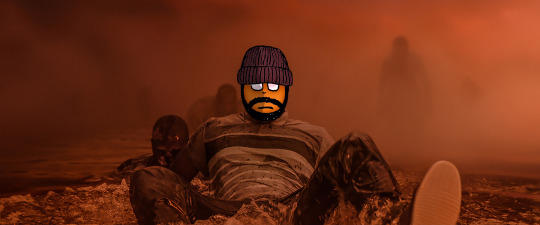
THE TOP 15 FILMS OF 2020
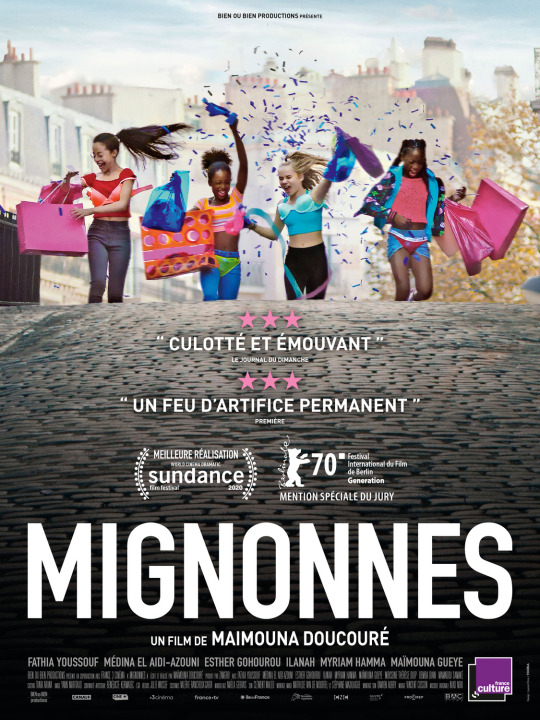
15. Mignonnes (dir. Maïmouna Doucouré) This one started off the year with plenty of controversy. What was an award-winning tale about womanhood and the difficulties surrounding coming of age in an ever-changing and evolving world quickly devolved into a campaign to ban the film (and Netflix). Many people overlooked the film as a cautionary tale about what access to the Internet and the sexually-charged nature in which women are portrayed can do to developing girls, instead choosing to accuse the film of being fodder for malicious types seeking to exploit the sexualizing of young women. More than anything, in my opinion, Mignonnes served as an example of our outrage-fueled culture and the way it tends to skew our perspective and/or our ability to take art at face value.
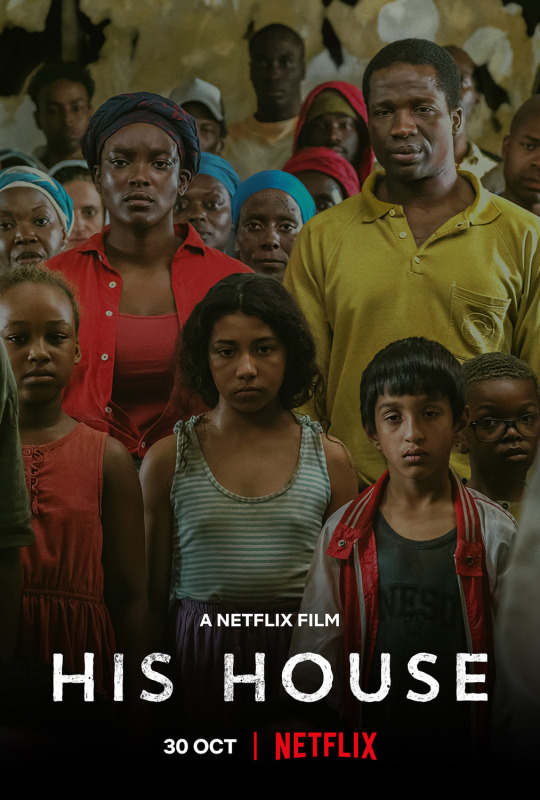
14. His House (dir. Remi Weekes) As I’ve mentioned many times over the past week or so on this blog, horror films were one of the few genres that found a benefit from the film industry’s transition to streaming services for primary access to film. While a number of traditional horror films received notice, His House took the opportunity to not only make a pure horror film, but one that spoke on racism and the conditions that asylum-seekers and refugees face. The film is well-acted, the production value is high quality, and it’s paced beautifully... while not the highest film on this list, it is certainly one I will encourage others to see as time goes by.
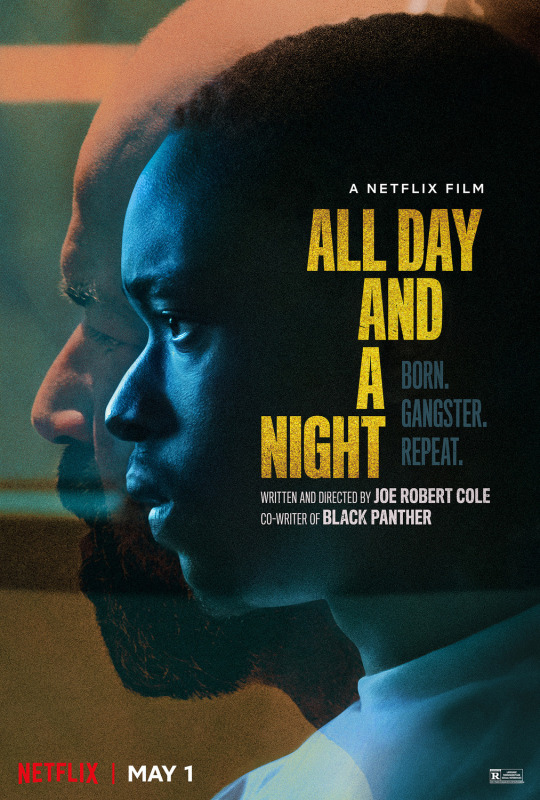
13. All Day and a Night (dir. Joe Robert Cole) When human nature reared its ugly head during COVID-19 in the form of numerous race-related killings, multitudes of businesses quickly adopted the Black Lives Matter mantra, with film distributors and streaming services taking advantage of the moment to produce and release content relevant to cultural and social awareness. Netflix was no different, and of the many films they released in the wake of the harrowing events, All Day and a Night is the one that feels the most sincere and honest in its approach and presentation. The streets of Oakland are presented with a vast array of characters, each with complex backgrounds and states of mind, all of which helps the viewer understand the pressure many minorities live with and process on a daily basis.
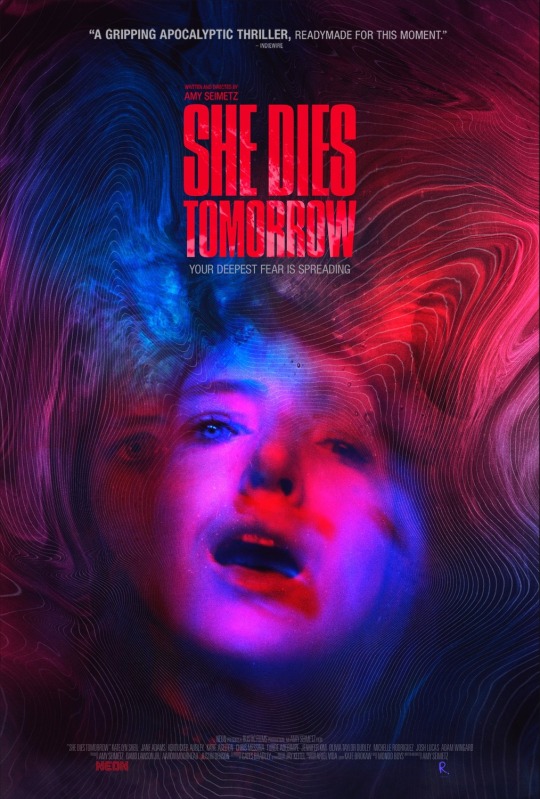
12. She Dies Tomorrow (dir. Amy Seimetz) Execution is king, even when applied to the simplest of premises, and She Dies Tomorrow is a shining example of this. In a very John Cassavetes move, director Amy Seimetz took her payment from her appearance in Pet Sematary and used it to fund a personal project that more than likely would have been ignored by studio heads. The result is a hypnotic, entrancing and haunting film where stillness and anticipation play antagonist, while we as viewers feel the need to transpose ourselves into the protagonists we are presented due to their stilted but emotional performances. Hopefully this one finds some notoriety in the cult classic realm as the years pass.
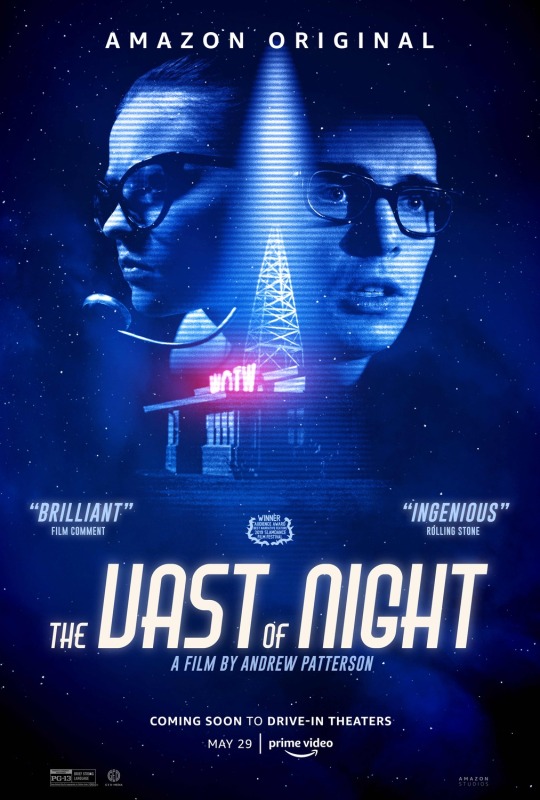
11. The Vast of Night (dir. Andrew Patterson) For a debut film, The Vast of Night handles itself with a surprising amount of confidence in its vision. The immersion is nearly instant as we are first placed in the premise of a TV show, and then a 1950′s town, but once the actors and camera get going, it’s up to us as viewers to strap in for the ride. The story is deeply intriguing, the performances are strong enough to carry a very dialogue heavy movie, and the final act is chilling in its reveals. I will be surprised if this one finds its way to a Best Original Screenplay nomination due to it being a debut film from a relatively unknown writer/director, but if it manages to get the nomination it will certainly be a well-deserved one.
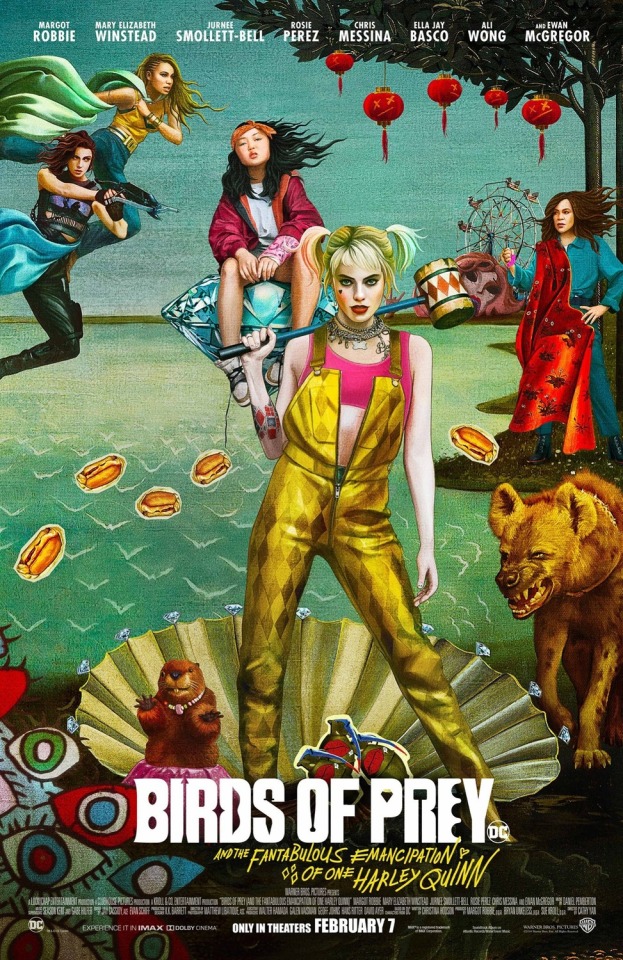
10. Birds of Prey (and the Fantabulous Emancipation of One Harley Quinn) (dir. Cathy Yan) The movie that broke the list. If someone would have told me in 2019 that a film directly connected to Suicide Squad would be anywhere on a Top Films list I curated, I would have laughed dead in their face, and yet, here we are. It’s like every good idea that was poorly executed in Suicide Squad found new life in Birds of Prey, which makes the film not only an entertaining watch, but a satisfying one. Not only is Margot Robbie perfect in this film (as well as given a break on the exploitative costuming), but Mary Elizabeth Winstead arguably takes a stab at stealing the show with her performance. Don’t let the DCEU association fool you... Birds of Prey is the real deal.

9. Never Rarely Sometimes Always (dir. Eliza Hittman) Probably the most contemplative film on the entire list, and impressive in its nature for sure. To my knowledge, the cast is made up of mostly unknowns (unless I’m sleeping on actors and actresses, which has been known to happen), and as a result, a tough slice of life to swallow is presented in an extremely grounded nature. Sidney Flanigan gives a powerful performance, hopefully the first of many.
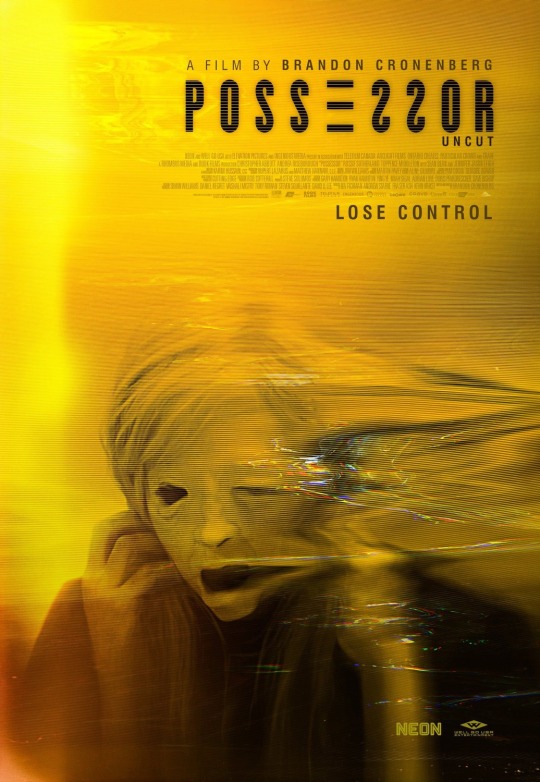
8. Possessor [Uncut] (dir. Brandon Cronenberg) Easily the most “what the f-ck” film on this list, and certainly one worthy of the Cronenberg name. Andrea Riseborough has been on my radar since Birdman or (The Unexpected Virtue of Ignorance) and Mandy, and seeing her in a lead role confirms her talent. I’m a sucker for science-fiction films that don’t rely on digital effects and elaborate set pieces, and Possessor rings both of those bells with a vengeance. I watched the uncut version, which has a couple of extremely brutal sequences that will unnerve even the most hardened viewer, but these sequences only serve to drive home the lost nature of Tasya, our protagonist. This one isn’t for everyone, but for those who can stomach a bit off graphicness and process a narrative that doesn’t spoon-feed you answers, this one is a must see.
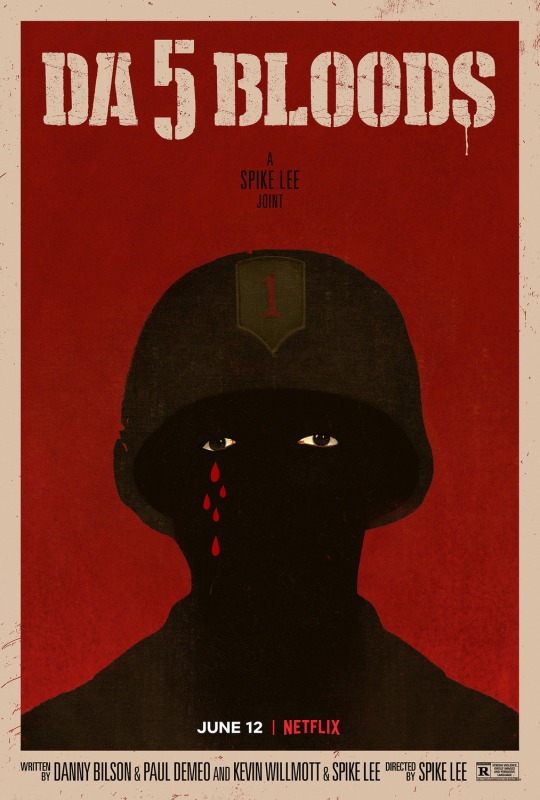
7. Da 5 Bloods (dir. Spike Lee) Spike Lee has always been a huge influence on me as both an aspiring filmmaker and a fan of the medium, but I’d be lying if I told you that his last decade was a memorable one. Outside of BlacKkKlansman, Lee has found himself falling short of his vision more often than not, but Da 5 Bloods is a tonal and stylistic bullseye. Fans of Lee will dig it, fans of Vietnam films will dig it, and anyone who had an inkling of respect or admiration for Chadwick Boseman will be moved. If Lee continues to make films as good as this one, he may find an entirely new generation of fans as a result.
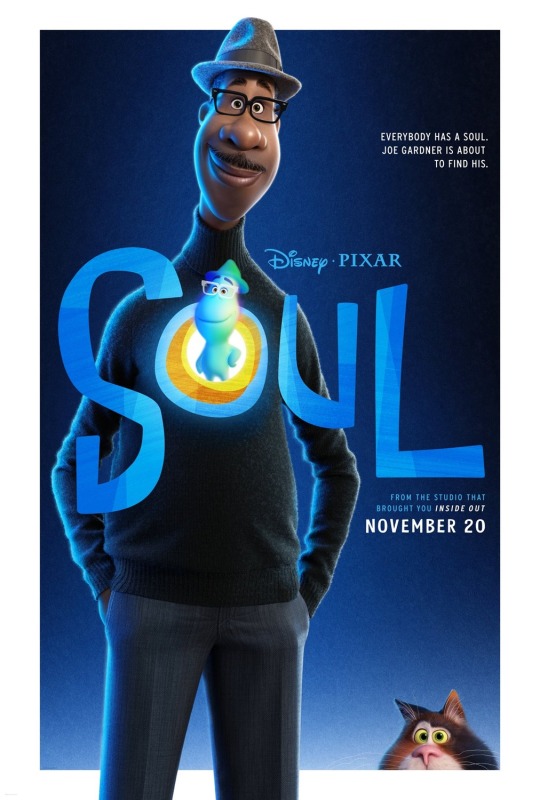
6. Soul (dir. Pete Docter) As mentioned at the top of this list, people love to try and sink films due to their own personal agendas, and Soul found itself in the crosshairs prior to its late 2020 release. Many people were upset that a minority character would not only spend most of the movie as a blue blob, but would also seemingly serve as a tool for another character’s “salvation”. That being said, once Soul dropped, anybody with common sense dropped those stances and realized that Pixar had not only made a stunningly beautiful film, but one that likely spoke to adults more than children. Plain and simple, Soul is a bonafide instant classic.
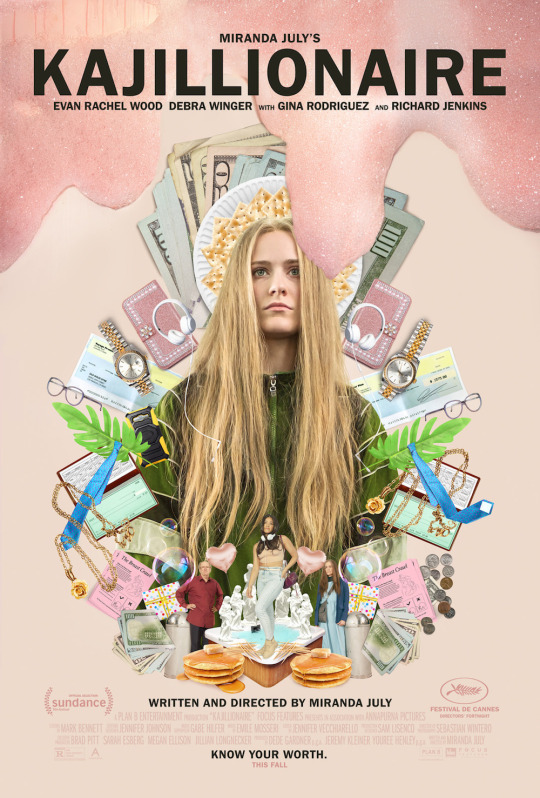
5. Kajillionaire (dir. Miranda July) If Evan Rachel Wood doesn’t win an Oscar for her performance in Kajillionaire (or at least garner a nomination), Hollywood needs to collectively have their head checked. Every year worth its salt has a weird, quirky but loveable film, and Miranda July more than succeeded in making one for 2020. The humor, both physical and dialogue-based, is on point, and the bittersweet nature of the story is gut-wrenching as the film progresses. This one was probably the biggest surprise for 2020 in terms of prior awareness versus post-watch admiration.
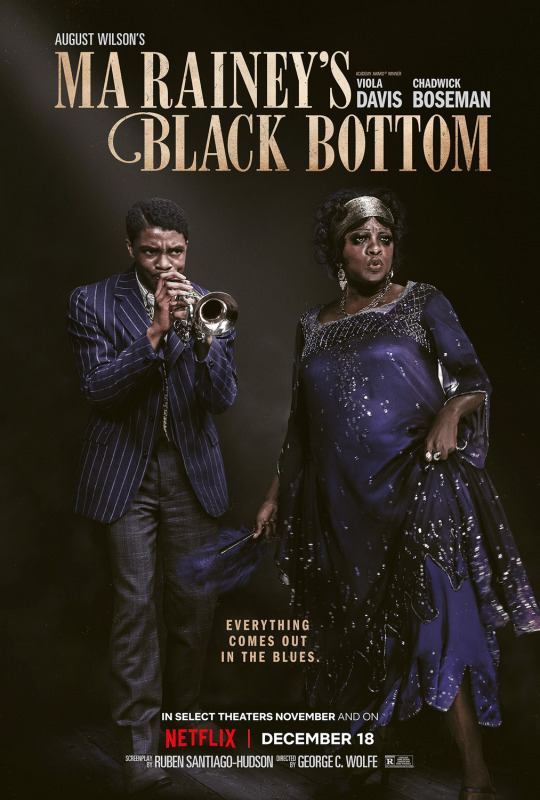
4. Ma Rainey’s Black Bottom (dir. George C. Wolfe) The final film of Chadwick Boseman’s short but prolific career is one that allowed him to exist in the wake of his reality, making his performance powerful and (seemingly) cathartic. He is surrounded by supreme talent on all sides, as there are no weak performances in this film, and despite it essentially being a play shot for film, it feels far from limited, contained or constrained. Not only does it speak on larger issues of the commodification of Black pain and talent, but it may serve as a vehicle for a posthumous Oscar for Boseman.
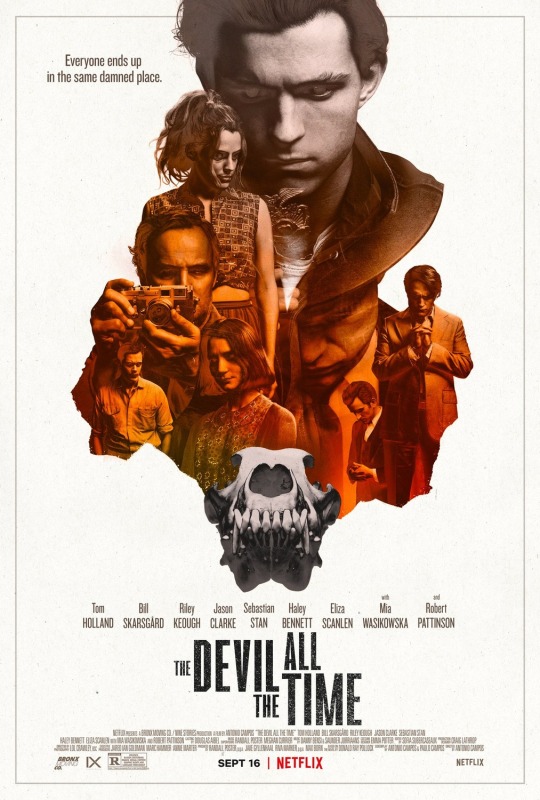
3. The Devil All The Time (dir. Antonio Campos) This was the first Netflix original that made me really and truly respect them as a film distributor. The list of talent for The Devil All The Time is truly impressive, and Tom Holland knocked his lead role out of the park. Robert Pattinson is great as always, and the way that the story winds back into itself keeps you locked in and connected until the credits roll. For something that came out so many months ago, it’s respectable that it was able to hold such a high position on a list that was as fluid as any I’ve ever put together.
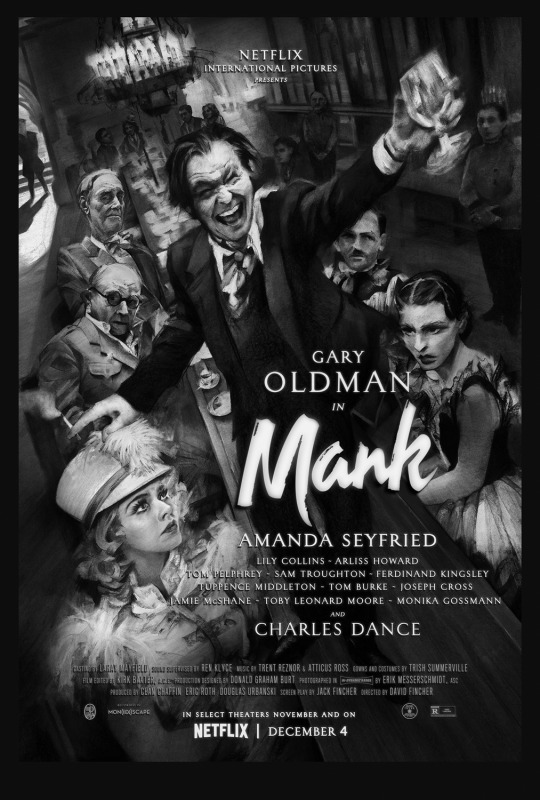
2. Mank (dir. David Fincher) For a time, this was the hands down film of the year on my list. Gary Oldman has basically become a “can do no wrong” actor, and his performance was amplified by David Fincher’s ability to emulate the look, sound and feel of a bygone Hollywood era. On top of this, the built in intrigue that comes with handling anything remotely connected to Orson Welles is present, making Mank almost feel like a companion piece to the prolific film that is Citizen Kane. If The Devil All The Time was a victory for Netflix, then Mank was the win that put them into a true spot as contenders in the future of film distribution.
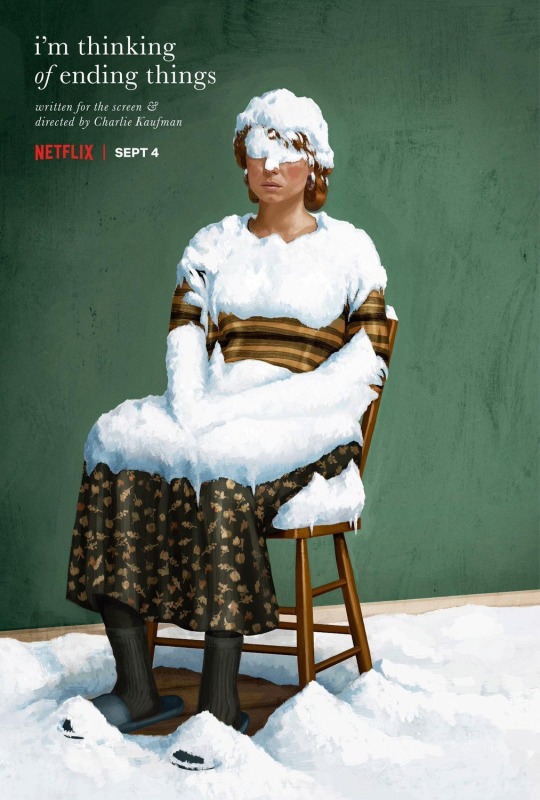
1. I'm Thinking of Ending Things (dir. Charlie Kaufman) Where does one even begin with Charlie Kaufman? Time and again, he proves to be one of the most truly unique voices to gain fame. For I’m Thinking of Ending Things, Kaufman seemingly returns to his foundation of odd, offbeat love stories, only to take us on a journey of truly mind-bending and psyche-warping proportions. Of all the movies on this list, this is the one that almost demands repeat viewings, as one must have an idea of the entire journey before they can understand the individual aspects laid out. If dialogue isn’t your thing, then this one may not hold you, but that would be a shame, as this beautiful mystery stands head and shoulders above the rest of 2020′s stellar output.
#ChiefDoomsday#DOOMonFILM#Mignonnes#MaimounaDoucoure#HisHouse#RemiWeekes#AllDayAndANight#JoeRobertCole#SheDIesTomorrow#AmySeimetz#TheVastOfNight#AndrewPatterson#BirdsOfPreyAndTheFantabulousEmancipationOfOneHarleyQuinn#CathyYan#NeverRarelySometimesAlways#ElizaHittman#Possessor#BrandonCronenberg#Da5Bloods#SpikeLee#Soul#PeteDocter#Kajillionaire#MirandaJuly#MaRaineysBlackBottom#GerorgeCWolfe#TheDevilAllTheTime#AntonioCampos#Mank#DavidFincher
6 notes
·
View notes
Text
Elaine May's Mikey & Nicky Ready for Rediscovery on Criterion Blu-ray
To these eyes, one of the most notable films of the '70s that still remains largely unknown and unheralded is “Mikey and Nicky,” Elaine May's astounding and virtually unclassifiable third feature film. It's probably better known today by most people for the wild behind-the-scenes stories surrounding its production than for the finished product, which disappeared virtually without a trace after its brief release in 1976. Yet after languishing in obscurity for decades, it has returned through a Blu-ray release from the Criterion Collection. For those who have actually seen it before, watching it again will only confirm its greatness. But for those who have not seen it before, it will no doubt prove to be a revelation—a work so brash and consistently surprising that newcomers will wonder what the hell people could have been thinking four decades ago when they passed it over.
Set over the course of one long night, the film opens with low-level hood Nicky (John Cassavetes) barricading himself inside a fleabag hotel. It seems he was part of a scheme to steal some money from a syndicate-owned bank and after hearing the news that his partner in the scam, has been killed, he is now paranoid that there is a contract out on him as well. With nowhere else to turn, he calls (not for the first time, we can assume) Mikey (Peter Falk), a childhood friend who is slightly higher up in the local criminal hierarchy, and desperately summons him to come to his room to help. Mikey arrives and, after much cajoling and arguing, finally persuades Nicky to leave the room and come with him to a nearby bar. This is trickier than it seems, because Nicky is so paranoid that he is not entirely sure that his old friend hasn’t ratted him out. He even goes so far as to make him switch coats with him in case there is someone out there waiting to ambush him.
The joke is that, for all of his twitchiness, Nicky is actually right to suspect his friend because the minute that they get to the bar, Mikey goes to the pay phone to contact the hit man (Ned Beatty) hired to kill Nicky with their whereabouts.That seemingly simple plan gets blown all to hell when the hit man gets helplessly lost on his way to the bar and Nicky starts insisting on going to a variety of different places—an all-night movie, another bar, his mother’s grave, the apartments of his estranged wife and the woman he occasionally sleeps with. As the night goes on, Nicky’s flitting about takes on the form of a long and unspoken plea to his friend to somehow get him out of this one final jam by appealing to their long acquaintance. As for Mikey, he loves his pal but he also loves his wife and child and comfortable house in the suburbs and knows that they are all at risk if he lets Nicky go or even if his higher-ups think that he might be considering such a thing.
After having established herself as such a renowned comedic force, first on stage and then with her first two directorial efforts—“A New Leaf” (1971) and “The Heartbreak Kid” (1972)—there was presumably little reason to suspect that May would venture outside of her comfort zone for her next project. Additionally, the film, on the surface, sounds like it has all of the makings for a decent buddy comedy—sort of a mash-up of “The In-Laws” (1979) and “Midnight Run” (1988) that happened to come along years before either of those were made. However, while the film has many funny moments, especially in the early scenes, “Mikey and Nicky” is not a comedy in any traditional sense. Even as a gangster movie, it managed to defy all possible expectations—instead of giving the sentimental version of organized crime that was then all the rage thanks to the “Godfather” movies or the adrenaline-fueled approach that Martin Scorsese utilized in “Mean Streets” (1973) and would use again years later in “Goodfellas” (1990), her perspective, apparently inspired by people and incidents that she knew of from her own childhood in Philadelphia, was of the truly low-level members of the organized crime world, the ones who could be rubbed out in an instant without anyone noticing. Even the crimes at the center of the film are of a decidedly small scale—the scam that has put Nicky’s life on the line earned him about a thousand bucks while the hitman complains that he will barely break even on killing Nicky after expenses.
So what the hell is “Mikey and Nicky” anyway? It is, in fact, a dark and penetrating drama about friendship, loyalty, self-preservation, and the kind of empty machismo that would one day be referred to as “toxic masculinity.” Most of all, it is about betrayal, a concept that is the key thematic link that binds all of May’s films together. Each one revolves in some way around couples where one member secretly tries to betray the other—broke playboy Walter Matthau plots to kill his new wife, a klutzy heiress played by May herself, to grab her fortune in “A New Leaf,” deeply shallow Charles Grodin conspires to dump new wife Jeannie Berlin on their honeymoon to take up with gorgeous Cybill Shepherd in “The Heartbreak Kid” and best friends Dustin Hoffman and Warren Beatty are manipulated into selling each other out in “Ishtar”—but this film is her most penetrating and thought-provoking take on the subject. Although not a long movie by any standards, May manages to pack in an extraordinary amount of details about these characters and their long relationship that allows us to empathize with the characters no matter what they may do to each other or anyone else who happens to fall in their path over the course of events pictured here. Watching Falk and Cassavetes (whose long personal friendship adds an additional frisson to the material) as they alternately bond and antagonize each other is sometimes hilarious and sometimes horrifying, but anyone who has had a long friendship with someone will recognize the up-and-down relationship that May depicts here in such piercing detail.
With its seemingly loose plotting and the interplay between Falk and Cassavetes, many have suggested that “Mikey and Nicky” is essentially a long filmed improv session, but a close look at the film shows that cannot possibly be the case. This is film is as intricately plotted as one could hope for, and the intercutting between Mikey and Nicky’s nocturnal adventures and the hit man closing in on them is presented with precision. The film's genius is that May presents the material in a way that suggests the oddball rhythms of real life instead of grinding of gears needed to get from plot point A to B.
Take an early scene in which Mikey rushes to a nearby bodega to get some milk and cream for Nicky’s ulcer—the place has milk but no cream other than the little packets that come with the coffee. At first, Mikey gets involved in a bizarre negotiation with the counterman in order to acquire those cream packets—he’ll buy fifteen coffees and hold the coffee—but then explodes into a burst of violence that is all the more terrifying because it genuinely comes out of nowhere. This is a scene that was clearly (and brilliantly) written but it has a documentary-like feel. It's a sensation that permeates the entire film—even the scenes that might have bordered on cliche (such as Mikey and the hitman reporting to their superiors or Mikey and Nicky breaking into a cemetery with a bit of Laurel & Hardy-style slapstick) are presented in fresh and invigorating ways that always stress the situation's realism.
Of course, that realism came at a cost and for May, that price was pretty steep. When she had made “A New Leaf” for Paramount a few years earlier, she shot an enormous amount of footage and the studio eventually took it away from her, and chopped a lot of footage out of her preferred cut. The move so outraged her that she sued the studio in an effort to prevent its release. And with “The Heartbreak Kid,” which she only directed, she basically stuck to the script and while it remains the least personal of her films by a mile, it was also a substantial enough hit to inspire Paramount to take her on again to make “Mikey and Nicky.” However, what they did not anticipate was that May, working for the first time from a screenplay that was entirely of her own creation, would shoot hours and hours of footage in order to try and capture the kind of spontaneous behavior between Falk and Cassavetes that would help further inform the friendship that she was trying to illustrate. By the time the studio finally pulled the plug, she had reportedly shot 1.4 million feet of footage, more than doubled the budget and missed the deadline for turning in her version. What happened next was crazy enough it could inspire its own movie (ranging from lawsuits to the “disappearance” of two key reels of footage after Paramount took over the film) but the end result was disastrous to both the film—which was finally released in 1976 in a recut version—and to May personally, who would not direct another movie for a decade, until she was hired by Warren Beatty to write and direct “Ishtar.”
“Mikey and Nicky” may not be the funniest film in May’s oeuvre (that honor goes to “Ishtar,” one of the funniest and most politically astute American comedies of its era) but in many ways, I would argue that it is the key work of her directorial career. From its startling attempts to depict its main characters trying to find moments of genuine emotional intimacy despite their simmering distrust, to their equally uncomprehending attempts to communicate with the women in their lives, to the myriad ways in which even the most ordinary of situations can spin out of control, to one of the most unexpectedly devastating final scenes in the history of '70s cinema, this is a wild and exhilarating work that continues to astonish. Especially watching it today, May’s continued absence from the director’s chair (her only film in the wake of “Ishtar” was an “American Masters”documentary about Mike Nichols) will feel like even more of a waste of a supreme talent than it already was.
In fact, the one disappointing aspect about the “Mikey and Nicky” Blu-ray is May's absence, aside from her supervision on the 4K transfer. Granted, this is not exactly news that will come as a surprise to many, considering she has been so tight-lipped about her work over the years, but to not have her give some kind of background regarding the film and its tumultuous history does seem to be a bit of a lost opportunity. Instead, the supplements include a new featurette with interviews with distributor Julian Schlossberg, who reissued the film in May’s preferred cut for a brief theatrical run in the mid-'80s, and actress Joyce Van Patten, (who makes a brief but devastating appearance towards the end as Nicky’s wife) giving a brief history on its background. There are also interviews with critics Richard Brody and Carrie Rickey attesting as to the importance of both the film and May, a 1976 audio interview with Peter Falk talking up the film, and vintage ads that tried (none too successfully, to be honest) to sell a tricky film to the masses. Finally, there is an informative essay penned by critic Nathan Rabin. Although one wishes that there might have been a wider array of supplements, the Criterion Blu-ray does underscore the point that “Mikey and Nicky” is indeed a treasure that is positively ripe for rediscovery.
“Mikey and Nicky” is now available on Blu-ray from The Criterion Collection. To order your copy, click here
from All Content http://bit.ly/2HpSrS9
0 notes
Text
Jeff Nichols' plan to make Arkansas a cinema paradise for film lovers
He and filmmaker Kathryn Tucker lead the Arkansas Cinema Society.
Jeff Nichols hasn't lived in Arkansas in more than a dozen years, but the acclaimed filmmaker remains deeply connected to his home state. He visits family and friends in Little Rock regularly, and set and shot two of his five films, "Shotgun Stories" and "Mud," here. His likely next one, "Alien Nation" — about "two intelligent species crashing together and trying to make it work," he says — takes place in Arkansas, at least in the version of the script he's working on now.
So it's not entirely surprising that Nichols is behind the Arkansas Cinema Society, a new initiative aimed at helping foster Arkansas's film culture. Nichols, who has lived in Austin, Texas, since 2002, wants to model the new venture on the Austin Film Society, founded in 1985 by Richard Linklater ("Dazed and Confused," "Boyhood"). The AFS hosts regular screenings, provides grants to filmmakers and teaches people how to make movies. When Nichols first got to Austin as a fledgling filmmaker with no money, a slim resume and a lot of ideas, the AFS was where he found his community. Today, it's where he meets up-and-coming filmmakers like Kat Candler, on whose 2014 film "Hellion" Nichols served as executive producer, and it's where he sees screenings of films he'd otherwise miss. Nichols calls the AFS a "magnet" for people who are interested in "production or film theory or just watching movies." The goal is for the Arkansas Cinema Society to be the same sort of hub.
The kickoff event will come Aug. 24-26, with a couple of well-known filmmakers coming to Little Rock's Ron Robinson Theater and the screening of some of their movies. "The goal would be that they show a film that inspired them during the day and talk about it, and in the evening show one of their films. And possibly have midnight screenings, whether they attend it or not," Nichols said, adding that he would moderate discussions with the filmmakers, whose names he's not ready to reveal. Then, beginning in September, the ASC will host monthly screenings at Ron Robinson. Depending on the audience and the ASC's budget, the screenings will later become twice monthly and then weekly. Perhaps around the holidays, Nichols will lead the first of three seminars on filmmaking — one each on writing, directing and editing. Nichols has had some practice. He recently did a master class at his alma mater, the University of North Carolina School of the Arts, and he's dropped in a few times to a class on his film "Mud," which is being taught at the University of Texas this semester.
Helping bring the ASC to reality is another filmmaker and Little Rock native, Kathryn Tucker. After working for several years as an assistant director on the likes of "Glee," "This Is 40" and "Oblivion," she moved back to Little Rock in 2012, and later met filmmaking brothers Josh and Miles Miller. She agreed to produce their feature debut, "All the Birds Have Flown South." She and that film's cinematographer, Gabe Mayhan, started dating and later married. They have a son who is nearly 2 years old. Tucker also produced the feature adaptation of Daniel Campbell's "Antiquities," with Mayhan again serving as cinematographer.
The formation of the ACS grew out of a meeting between Nichols and Tucker when Nichols was in town in November for a screening of his latest film, "Loving," to benefit the Tiger Foundation of Little Rock Central High School, where he and Tucker were classmates. The conversation got around to what a shame it was that the Little Rock Film Festival called it quits in 2015. When Tucker mentioned there was interest in reviving the festival, Nichols suggested instead that they go for a year-round model.
Tucker is leading the ASC on the ground as executive director of the newly established 501(c)(3) nonprofit. Nichols is chairman of the board, for which Tucker and Nichols recruited an all-star membership that includes former Gov. Mike Beebe, Mary Steenburgen, local writer and television creator Graham Gordy, producer Jayme Lemons and Yellow Rocket Concepts creative director Amber Brewer.
Brent and Craig Renaud, the acclaimed documentary filmmakers who co-founded the Little Rock Film Festival, cited their busy professional schedule as a reason for shuttering the fest after nine years. Because of their workload, they didn't have the time needed to raise money or manage the logistics of the fest. How will an organization led by two working filmmakers avoid the same fate?
"I'm going to see it through no matter what that takes," Tucker said. "We're building this thing slowly and laying a really good foundation. We've also got so many people on our board who aren't going to let it fail."
Nichols stressed the importance of community involvement and running lean. "I hope that Kathryn and I aren't the engine for this thing. Or a better way to put it is, we build the engine, but the fuel is the community, and it will just sit there not running if the community doesn't respond. If they don't, we'll move on and go do something else. But it's on our shoulders to build something that runs on not much gas."
For budget reasons, Nichols doesn't want to see the ACS start a traditional film festival.
"When you throw a big event, it's like throwing a big party. You've got to bring in a lot of people from out of town, and you've got to pay for their airfare, and you've got to pay to put them up in a hotel, and you've got to get cars to take them places, and you've got to have places to do multiple screenings, and you've got to sell tickets and have to have an infrastructure to sell tickets, and you have to have a big party and pay for catering and do the decorations. You have to do all this shit, which has nothing to do with getting as many people together to watch a movie."
A model to grow toward might be Ebertfest in Champaign, Ill. Founded by the late film critic Roger Ebert, the fest does no counterprogramming and isn't competitive. It's a tightly curated event. When the critic was alive, it was "Roger Ebert saying, 'Hey, take a look at these films,' " said Nichols, who screened "Shotgun Stories" there in 2007. He and Tucker say the August kickoff event could grow into a version of Ebertfest down the road.
But don't look only for indie movie fare at it or at ACS screenings throughout the year.
"I'm not simply a guy who loves European arthouse films," Nichols said. "Movies are fun. They're amazing and they can open your mind and they can be a blast to experience in a room with other people, and I want the programming to reflect that. For every Cassavetes series, you have one that's a Sam Raimi ("The Evil Dead," "Spider-Man")."
Tucker echoed a similar sentiment. "I feel like a lot of film nerds — a term I use lovingly because I'm one of them — who program film festivals, show things that are way too obscure for our audience. They want to show the beauty of these crazy Japanese films and these terrible horror films, and they say, 'If only people would just see these, they'd see how awesome they are.' But a lot of people don't." She said she thought a lot of people either wanted to see how "Spider-Man" was made, or they want to see films getting buzz at festivals.
Though Nichols and Tucker want the ACS to grow responsibly, they have grand visions for the nonprofit. Most immediately, they hope to partner with and help promote all existing film festivals and screenings throughout the state. They encourage anyone with ideas for partnerships or anything else to connect via arkansascinemasociety.org.
"If you're from Arkansas and you're into movies, that's awesome. All ships rise, is my philosophy. That's how it's been in my film career," Nichols said.
Once the ACS has made some strides on fundraising, Nichols said, he wants to start a grant program modeled on one at the Austin Film Society. "If you can prove that you've been to a film festival with a film [or been accepted to a festival], we'll give you a grant to help out with travel. Even after it's done. I remember with 'Shotgun Stories,' I was so broke. [The AFS] gave me something, I can't remember exactly what, maybe it was $250, but it was a chunk that really helped. You don't have to put a committee together to judge. It's, 'Cool, you made something. Cool, you got it into a film festival. Let us help you.' "
Down the road, he said, he'd like to create another grant program modeled on the Texas Filmmakers Production Fund, where a panel would review submissions for support of creative material or productions in process. "That's later down the road because that's more complicated," Nichols acknowledged. "And you have to raise a certain amount of money just for that."
Another dream: working with single-screen theaters in smaller towns throughout Arkansas. "How amazing would it be if we could help those places out?" Nichols asked. "If we could help them stay open or improve their screening capabilities. Maybe in exchange for that, we get to show a movie there once a month or once in a while. Admittedly, this is coming from a guy who has made movies that typically play in one or two places and people have to drive to see them." Even more far out would be following the Alamo Drafthouse Cinema's Rolling Roadshow model, where the ACS would have a massive inflatable screen and a cinema-grade projector to take on the road throughout the state, Nichols said.
Nichols calls the demolition of the Cinema 150 on South University Avenue in 2015 "a travesty."
"It my dream world, you'd flash down the road 15 years, and we'd have a single screen dome theater, with Arkansas Cinema Society offices in it, a restaurant, maybe one of John [Beachboard]'s breweries." (Beachboard is a longtime friend and Lost Forty co-owner.)
Tucker might know a real estate guy. Her father, Rett Tucker, of the development and real estate firm Moses Tucker, is a member of the ACS board.
Jeff Nichols' plan to make Arkansas a cinema paradise for film lovers
0 notes